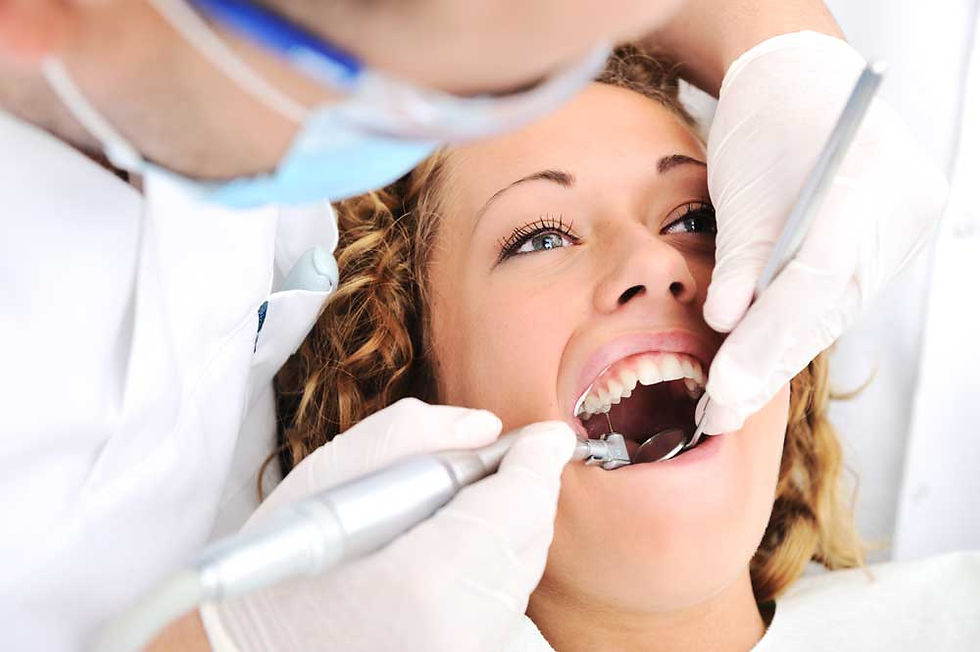What are the Do's and Don'ts After Dental Fillings?
- Laticia Gibson
- Sep 14, 2022
- 2 min read
If you've got a cavity or decay, you will likely have a dental cavity filling. A Palmer Dental will suggest what you should and should not do after a cavity filling treatment.
Be careful about eating after having a dental filling.
Depending on what type of filing your dentist places, you should be cautious about what you eat immediately after the filling procedure. Because your composite white filling instantly hardens after the UV light your dentist uses. You can consider options after filling a tooth, including soup and crackers, scrambled eggs, and other soft food items.
But if you experience any pain or swelling, you may want to wait until it decreases before eating food. However, find your swelling or discomfort won't go away in a day or two. You should consider visiting a dental hygienist to ease the situation.
Metal dental fillings take time to harden, so most dentist recommends at least 24 hours of waiting time after receiving a dental filling. To avoid biting your lips, cheek, or tongue, you need to wait until the effect of the anesthetic wears off. You should ask your dentist about the best eating time after filling.
Don't eat sticky, rigid, or chewy foods for up to two weeks.
You should not eat hot or cold food for a few days after dental treatment. Sticky, hard, or chewy foods are not advisable for at least two weeks. Moreover, you shouldn't eat highly acidic or sugary food to prevent infection.
Take over-the-counter(OTC) painkillers if you experience pain, discomfort, or tooth sensitivity after a dental filling.
Suppose you notice any level of discomfort or pain following the dental filling. Most of the time, your swelling and pain will go away after 12 hours, and you can eat anything without experiencing tooth sensitivity or irritation around the area.
If you feel any, you should make a dentist appointment near me, and they will prescribe some painkillers such as ibuprofen or acetaminophen to ease any pain or discomfort after a dental filling.
Don't hesitate to brush your teeth or floss after a filling.
You don't need to wait to brush or floss your teeth just after a dental filling. Because as long as you brush and floss your teeth carefully, your teeth and gums get cleaned, resulting in faster healing and hygienic treated area.
Do contact your dentist if you experience a persistent toothache
After the treatment, if you feel mild pain or discomfort, a persistent sharp and throbbing toothache can indicate that your teeth's pulp has been exposed to the infected bacteria. Then you need to visit a orthodontic experts for a root canal to save your teeth from eruption and prevent further infection.
Suppose you want a hygienic and healthy smile. In that case, you shouldn't compromise your dental practices, such as brushing and flossing your teeth at least twice a day and visiting the orthodontics near me at least two times a year for a regular checkup.


Comments